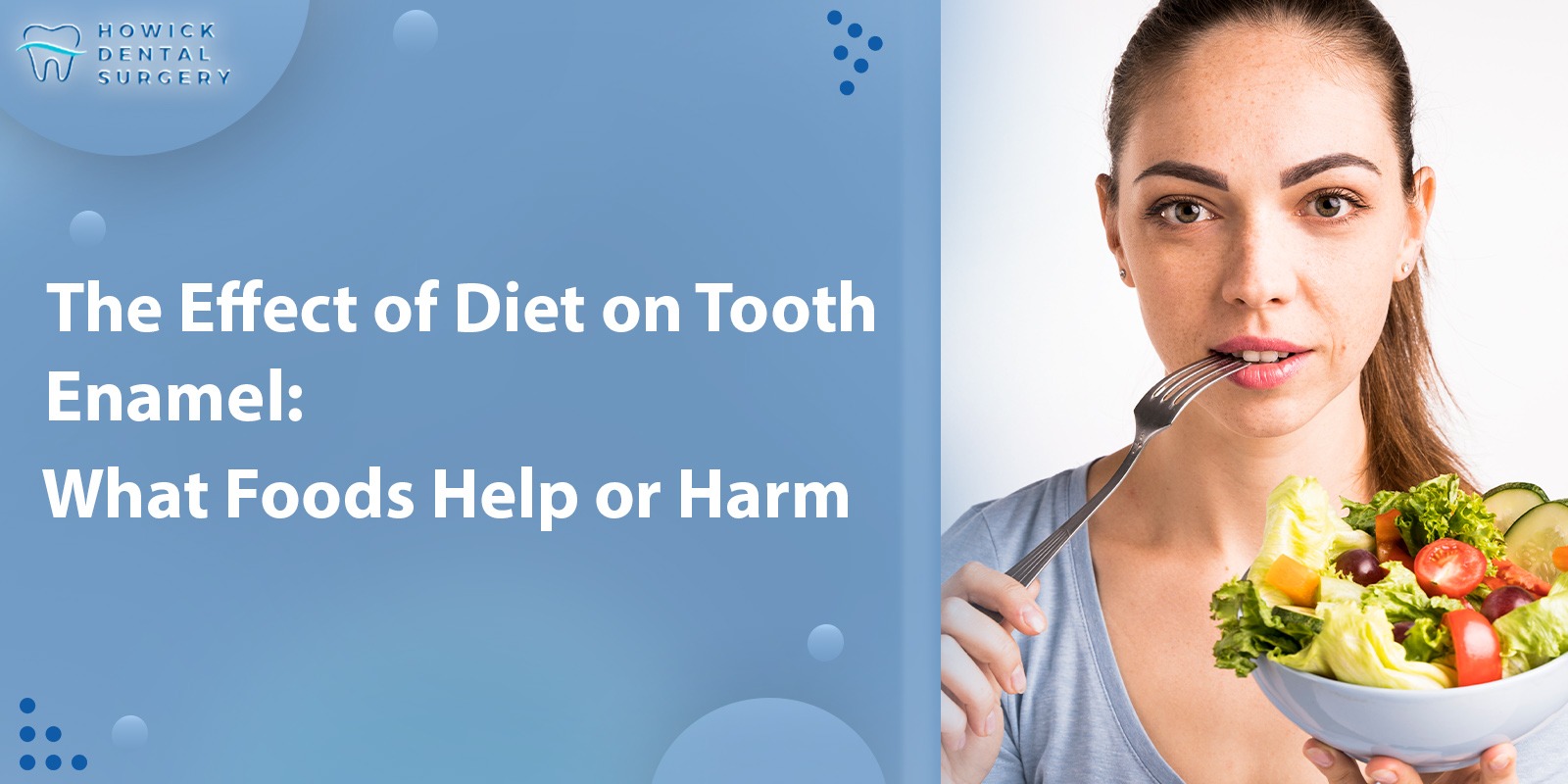Your tooth enamel is the hardest substance in your body but it’s not invincible. The foods and drinks you consume daily can either gradually erode enamel (demineralisation) or, with the right choices, help repair it (remineralisation). In New Zealand, where sugar consumption and acidic drinks are common, being aware of how diet affects enamel is vital for lifelong oral health.
Enamel: A Balance Between Loss and Repair
Enamel is composed mainly of minerals (calcium, phosphate). When the mouth’s pH drops (acidic environment), minerals are leached out (demineralisation). Saliva and certain dietary minerals help reverse this process (remineralisation) if conditions permit.
If acid attacks are frequent or intense (for example, from snacking sugary or acidic foods many times per day), enamel loss outpaces repair, and permanent damage can result.
Foods & Drinks That Harm Enamel
- Sugary and Carbonated Beverages
Soft drinks, energy drinks, cordials, and sugary juices combine high sugar with acidity — a double hit for enamel. The bacterial breakdown of sugars produces acids that demineralise enamel, while the beverage’s acidity does direct damage. - Acidic Fruits and Juices
Citrus fruits (oranges, lemons, grapefruit), tomato products and their juices can lower pH in the mouth and soften enamel. If consumed often outside meals, they pose greater risk. - Sticky & Starchy Foods
Dried fruits, toffees, candies, and even some starchy snacks may cling to tooth surfaces, prolonging acid attack from bacteria. - Frequent Snacking
Even “healthy” snacks, if eaten repeatedly throughout the day, lead to repeated acid attacks and don’t allow saliva time to neutralise acidity. - Overuse of Acidic Beverages (tea, wine, etc.)
Although tea is less harmful than soda, highly acidic teas or consuming them frequently may have negative effects if fluoride or protective minerals aren’t part of the balance.
Foods & Practices That Help Protect or Repair Enamel
- Dairy Products (Milk, Cheese, Yogurt)
These are rich in calcium and phosphate, key building blocks for remineralisation. Cheese also stimulates saliva and helps neutralise acid. - Leafy Greens & Vegetables
Vegetables like spinach, kale and broccoli deliver minerals like calcium and also antioxidants that support gum and enamel health. - Crunchy Fruits & Vegetables
Apples, carrots, celery and cucumber not only provide nutrients, but their crunchy texture helps stimulate saliva and mechanically clean surfaces. - Fish, Eggs, Nuts
Sources of phosphorus, protein, and sometimes vitamin D, these help in enamel health and general nutritional balance. - Chewing Sugar-Free Gum (Xylitol)
After meals, chewing a sugar-free gum stimulates saliva, which helps wash away acids and provides minerals for enamel repair. - Water & Fluoride
Drinking water (especially fluoridated water) helps dilute acids and supports remineralisation. Fluoride in toothpaste or water helps enamel resist acid.
Practical Tips for a NZ Context
- Time acid exposures — for example, enjoy citrus fruits or juices during meals, not in between.
- Rinse with water after drinking or eating acidic or sugary foods to help neutralise the environment.
- Wait before brushing — brushing immediately after an acidic snack can remove softened enamel. Ideally wait 30–60 minutes for saliva to re-harden enamel.
- Moderate sugary snacks and drinks — make them occasional treats rather than constant.
- Use fluoride toothpaste and regular dental checkups, especially in regions with known dental caries prevalence in NZ.
Diet plays a fundamental role in the health of tooth enamel. While acidic and sugary foods wear enamel down, the right balance of minerals, good saliva flow, and careful timing can help your teeth repair themselves. In New Zealand, with access to fluoridated water in many regions and a wide variety of fresh foods, there’s a strong opportunity to tailor diets that support enamel health.


Leave a Reply